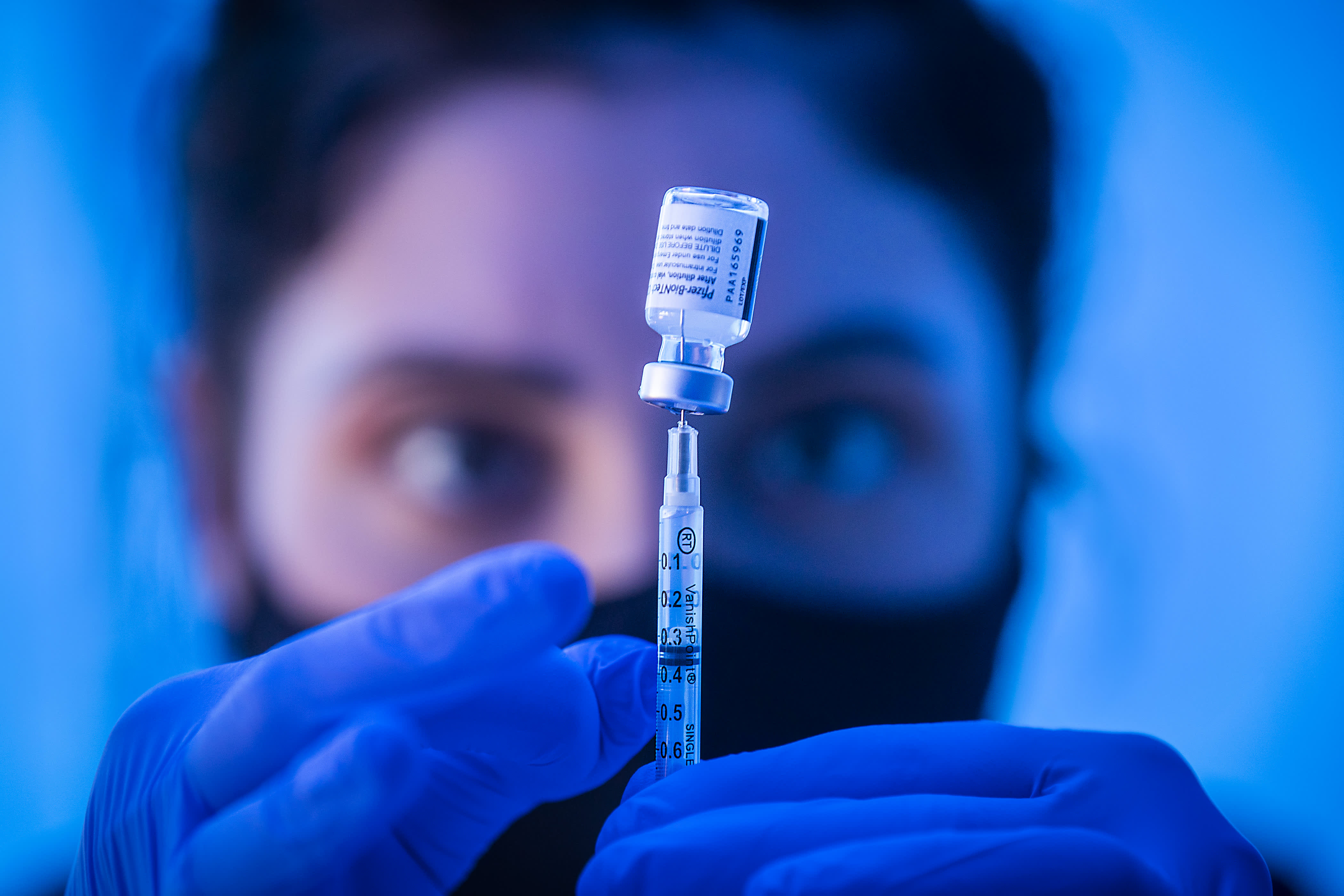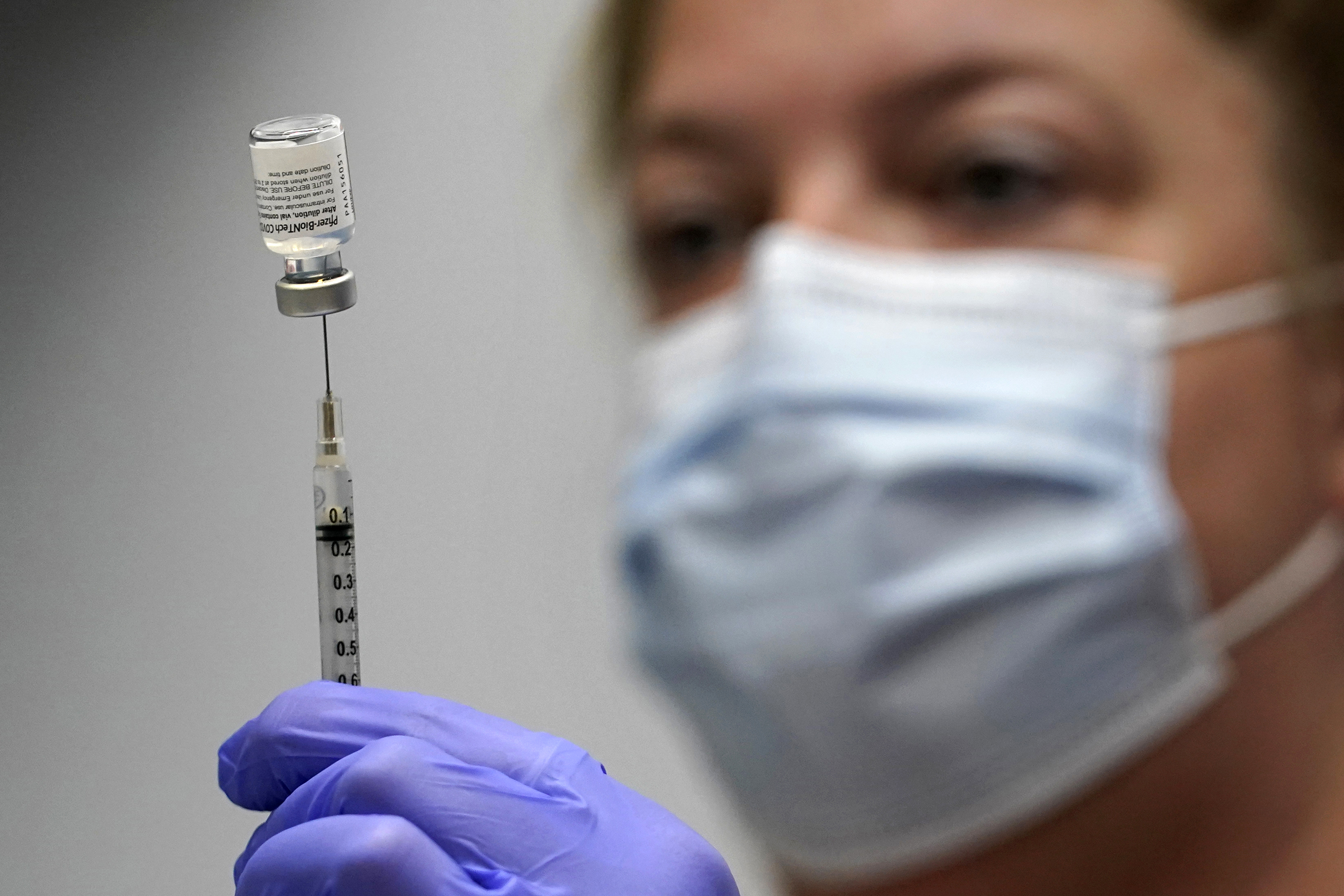Johnson & Johnson released data showing that a booster dose to its one-shot coronavirus vaccine provides a strong immune response months after people receive a first dose.
J&J said in a statement Tuesday that it ran two early studies in people previously given its vaccine and found that a second dose produced an increased antibody response in adults from age 18 to 55. The study's results haven't yet been peer-reviewed.
The one-dose J&J vaccine was found in clinical trials to have a 66% efficacy against moderate to severe disease and 93% against hospitalization. But when when given boosters two months after the first dose, antibody levels increased four to six-fold, providing 94% protection against symptomatic infection in the U.S. and 100% protection against severe disease. Globally, a booster shot given about two months after the first dose is 75% effective against symptomatic infection.
“A booster dose of the Johnson & Johnson COVID-19 vaccine further increases antibody responses among study participants who had previously received our vaccine,” said Dr. Mathai Mammen, global head of research and development at J&J.
The company also noted that there was no evidence that its single-shot vaccine reduced effectiveness over time.
"Our large real-world-evidence and Phase 3 studies confirm that the single-shot Johnson & Johnson vaccine provides strong and long-lasting protection against COVID-19-related hospitalizations," Mammen said in a statement.
The booster shot of the vaccine remained well-tolerated, with side effects generally consistent with those seen after the initial dose.
The company is in talks with regulators including the U.S. Food and Drug Administration, the European Medicines Agency and others regarding using booster doses of its vaccine.
J&J’s vaccine is approved for use in the U.S., across Europe and there are plans for at least 200 million doses to be shared with the U.N.-backed COVAX effort aimed at distributing vaccines to poor countries. But the company has been plagued by production problems and millions of doses made at a troubled factory in Baltimore had to be thrown out.
Feeling out of the loop? We'll catch you up on the Chicago news you need to know. Sign up for the weekly Chicago Catch-Up newsletter.
The J&J vaccine has been considered critical by numerous health officials to ending the pandemic because it requires only one shot, but fears about the easier-to-spread delta coronavirus variant have prompted numerous governments to consider the use of booster shots for many approved vaccines.
Last week, experts at the FDA recommended people 65 and older get a third dose of the COVID-19 vaccine made by Pfizer-BioNTech while Britain previously authorized booster shots for people 50 and over in addition to priority groups like health workers and those with underlying health conditions. Other countries including Israel, France and Germany have also begun offering third vaccine doses to some people.
The World Health Organization has urged rich countries to stop administering booster doses until at least the end of the year, saying vaccines should immediately be redirected to Africa, where fewer than 4% of the population is fully immunized. In a paper published last week in the journal Lancet, top scientists from the WHO and FDA argued that the average person doesn't need a booster shot and that the authorized vaccines to date provide strong protection against severe COVID-19, hospitalization and death.



